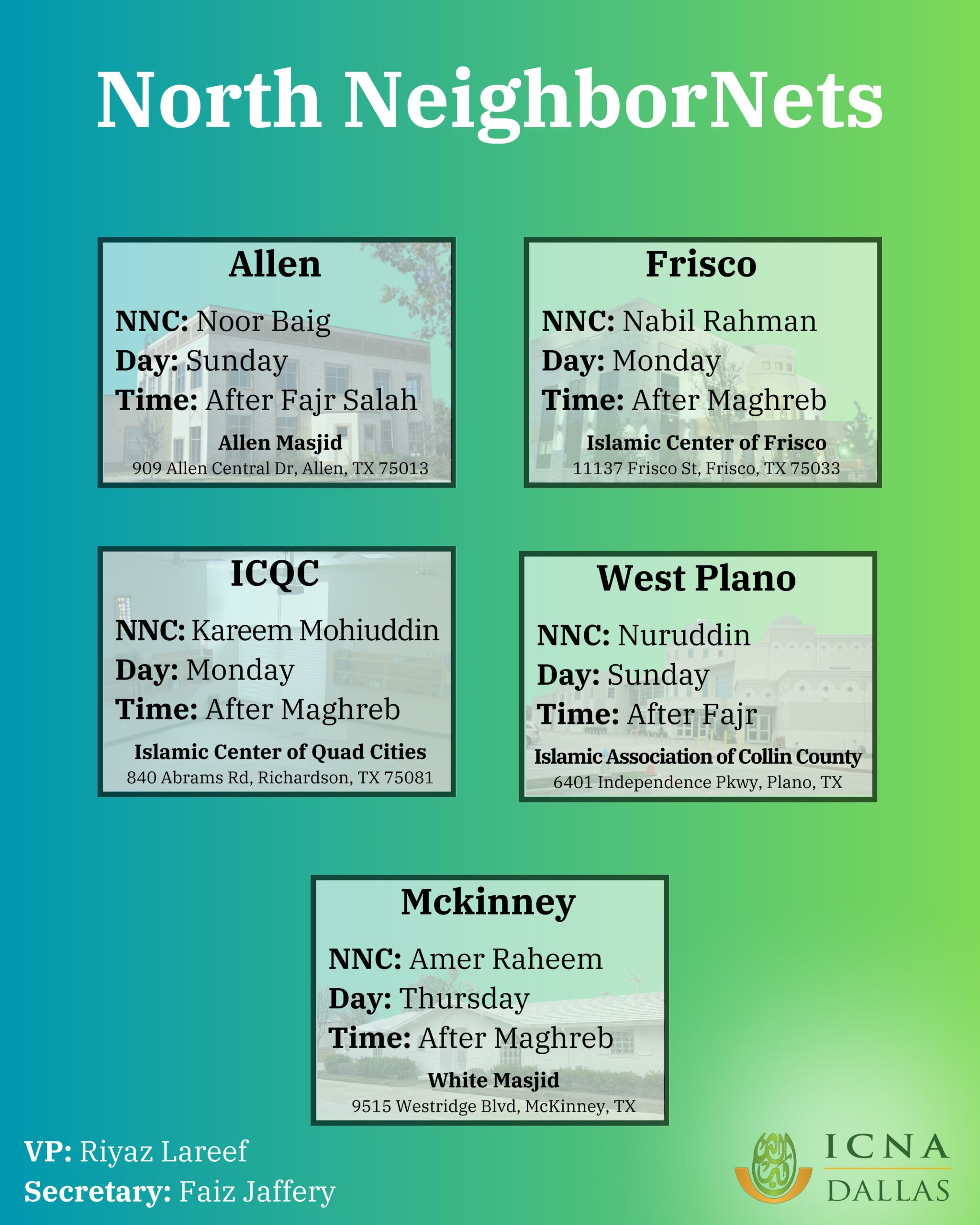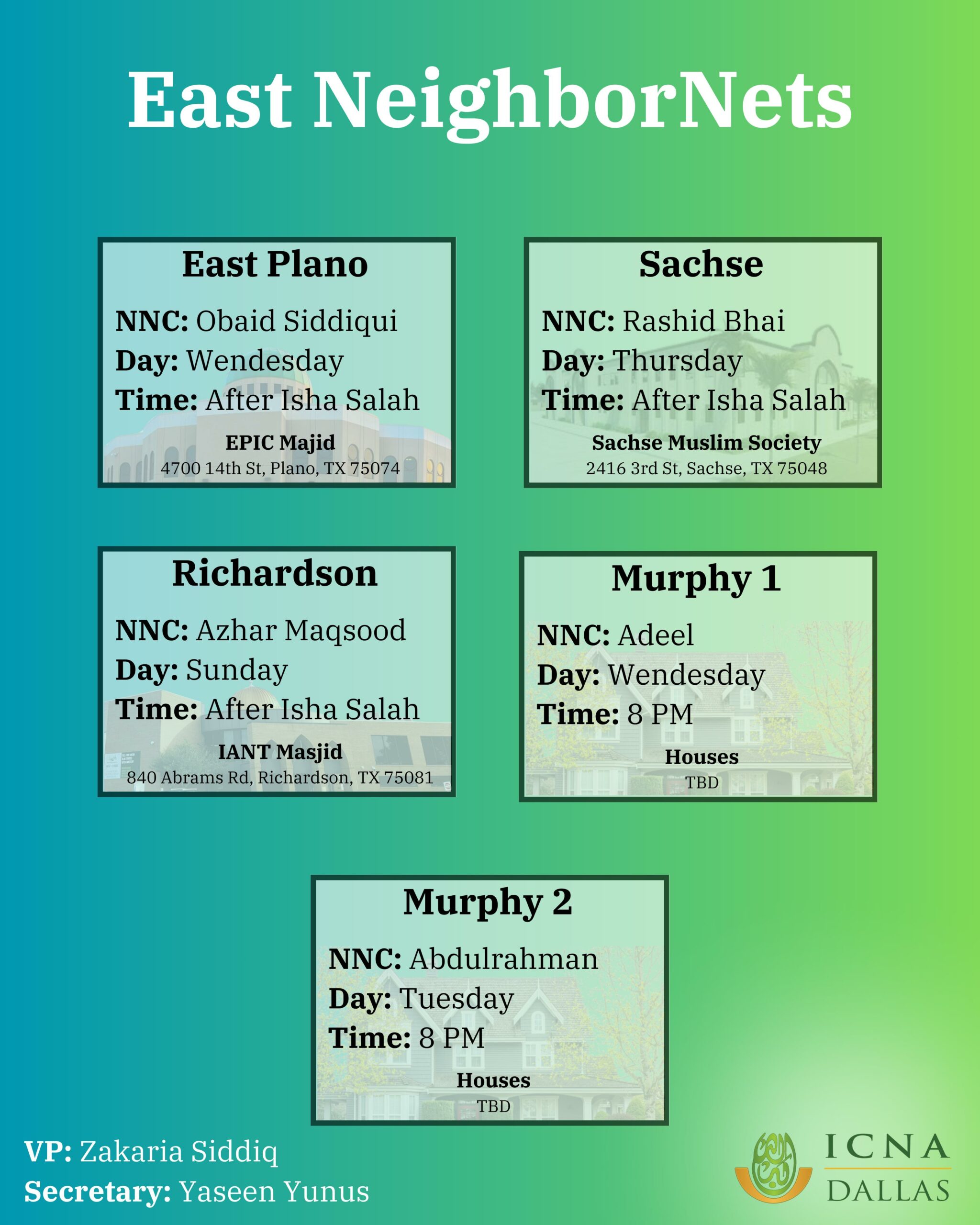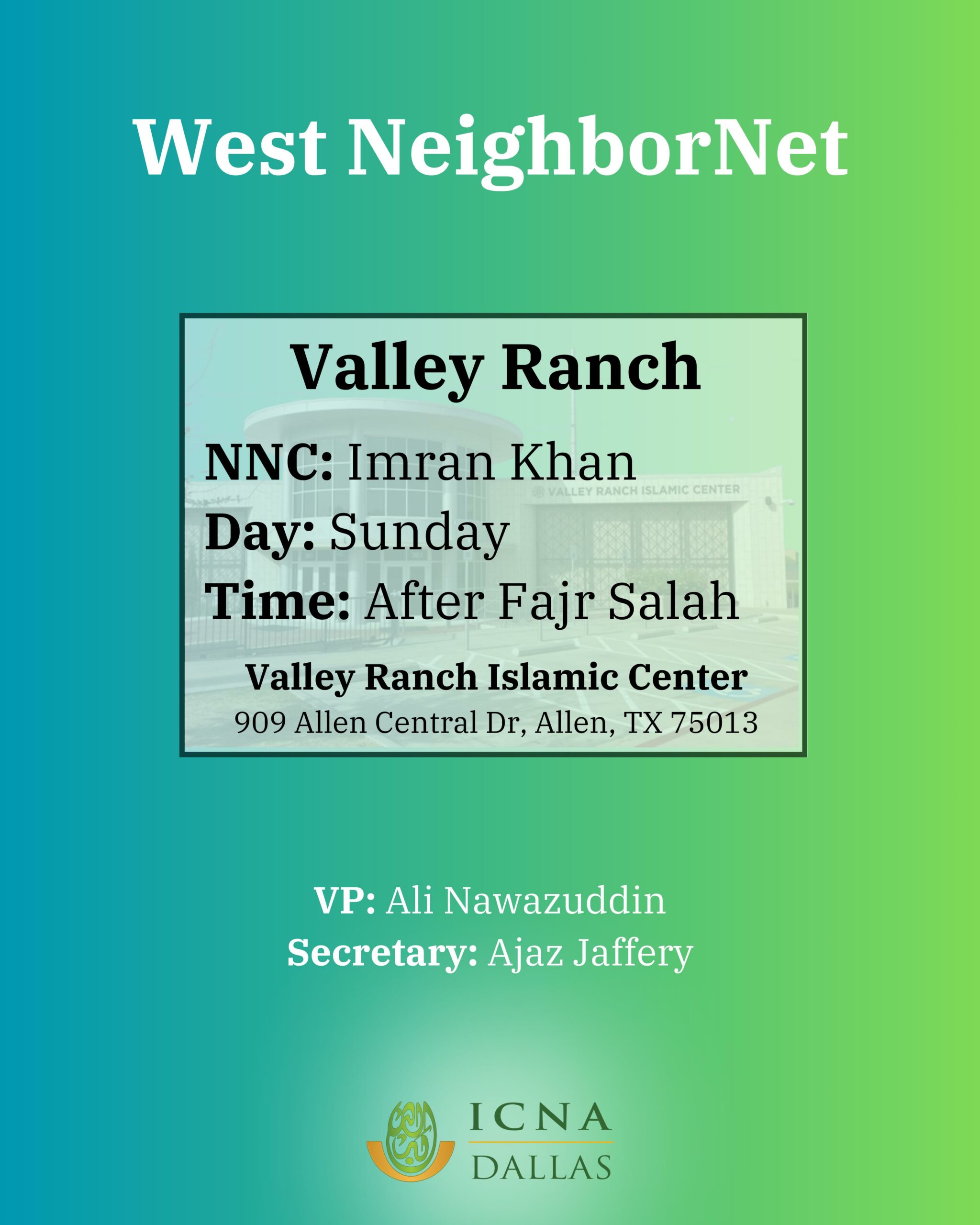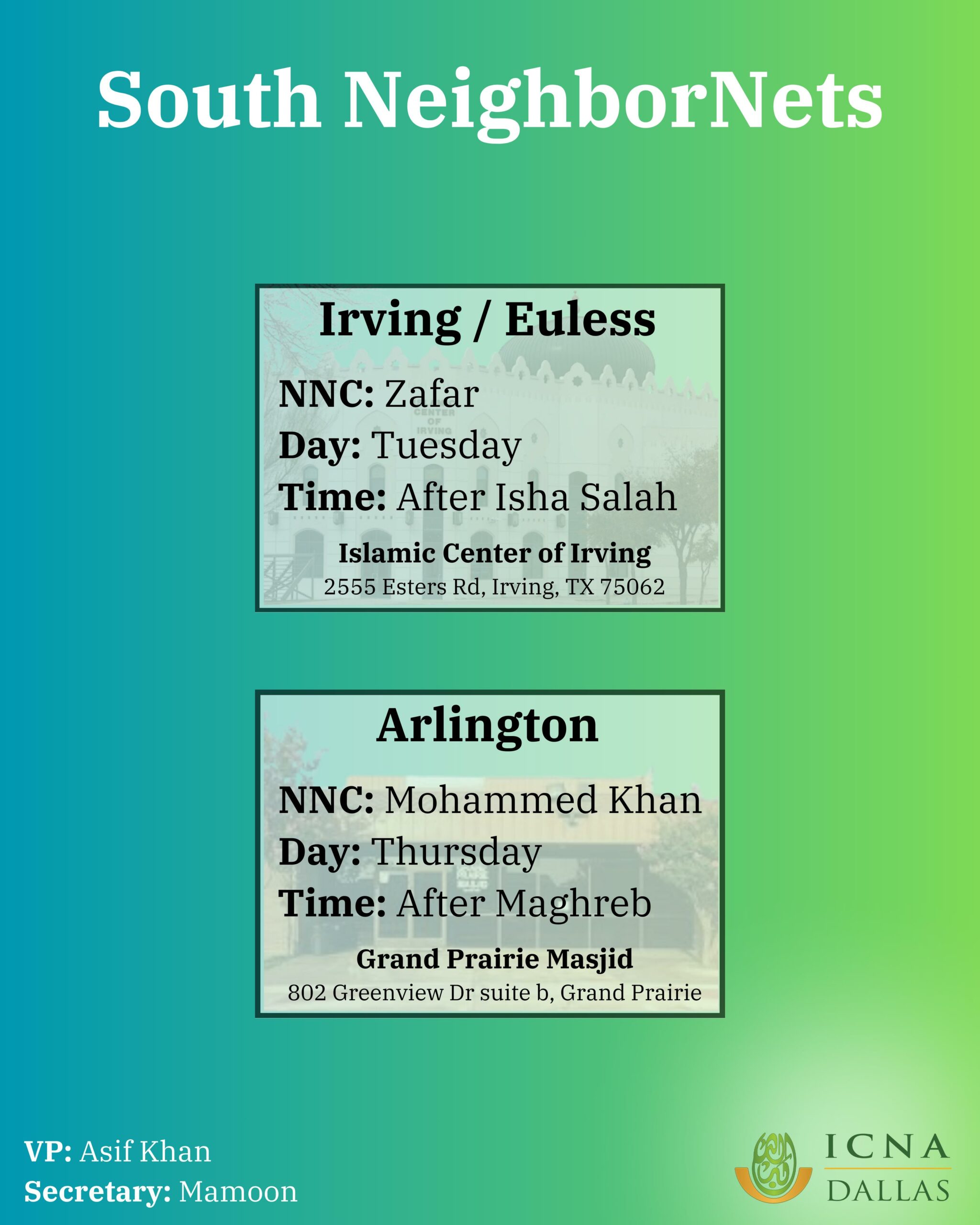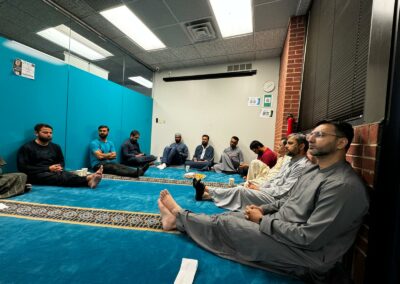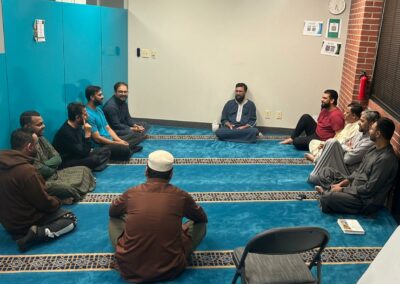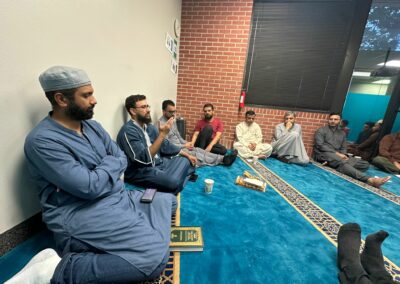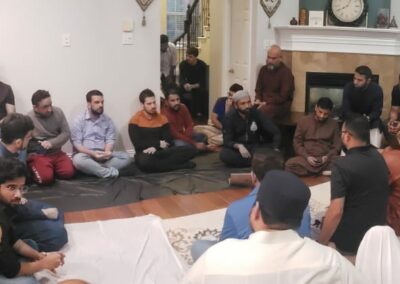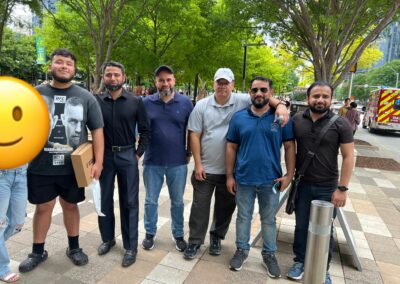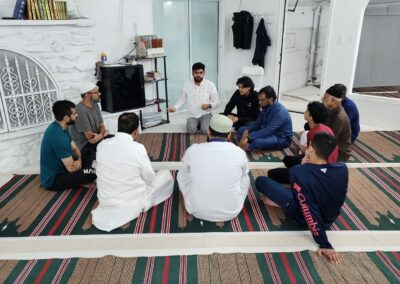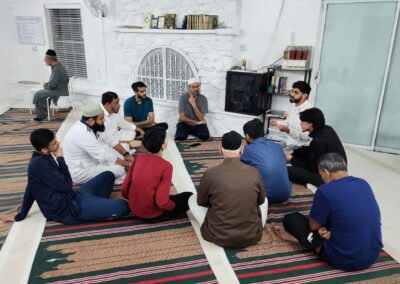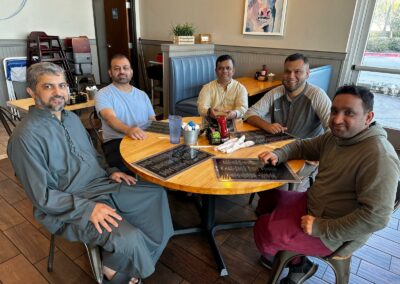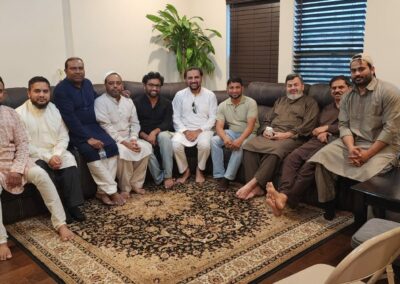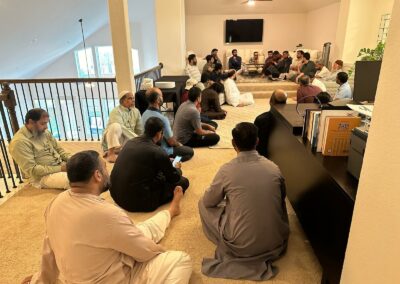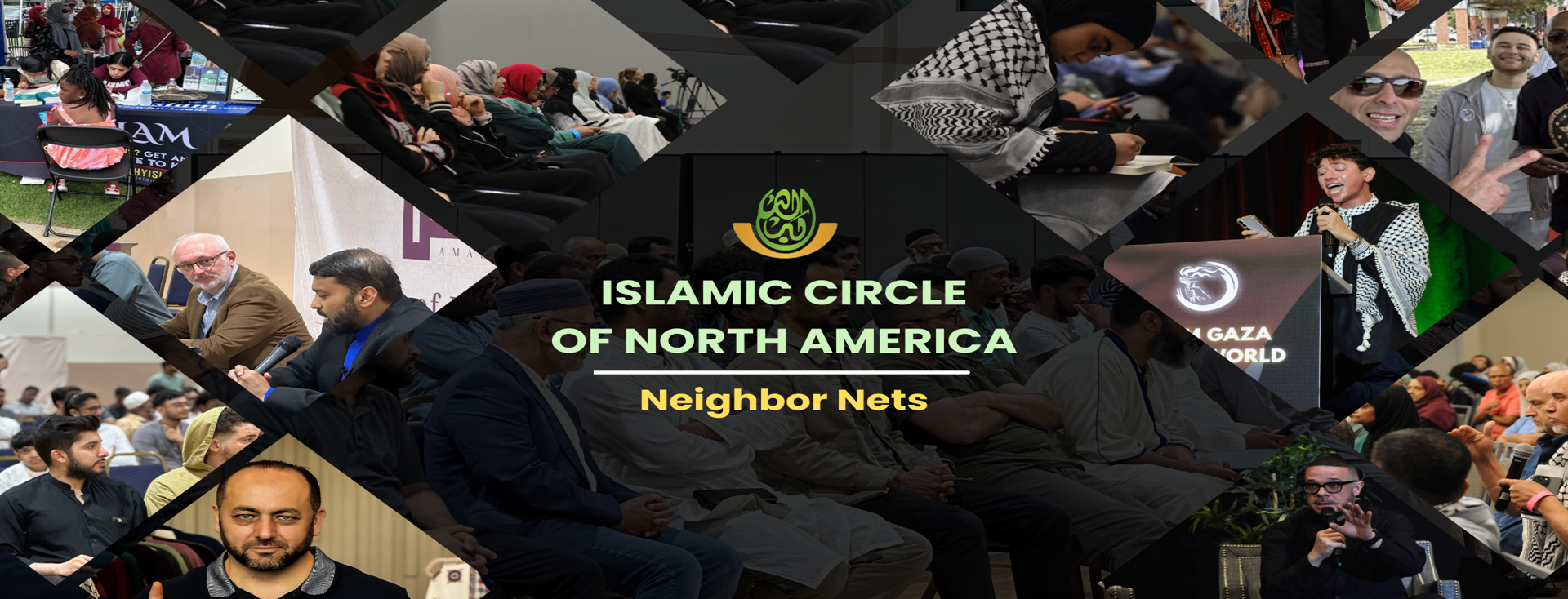
ICNA Neighbor Nets
NNets – A Spiritual Workout : Historical Overview
NNet, although presented under a different term, is not a novel concept but rather a variation of existing practices such as usra, halaqa, or study circles. Its origins can be traced back to the early days of Islam, notably in Dar Al-Arqam.
Upon embracing Islam, the Sahabah sought guidance and fellowship in the first usra convened in the home of Al-Arqam. Even following the 2nd pledge of Aqabah, Prophet Muhammad (SAW) organized 73 individuals into 12 naqeebs (leaders), ensuring comprehensive care for all members of the community.
Throughout Islamic history, NNet or Usra has remained a recurrent model of Tarbiya, or spiritual nurturing. Contemporary Islamic movements led by figures like Hasanul Banna and Mawdudi have also embraced NNet/Usra as an integral tool for individual and collective development.
This time-tested approach has proven to be highly effective in fostering personal growth and self-development within the Muslim community.
In summary, NNets are an important part of spiritual growth in the Muslim community. They offer a regular chance for people to learn, reflect, and grow together. Through NNets, individuals deepen their understanding of Islam, connect with the Quran, and face life’s challenges with strength and wisdom. Plus, NNets create a sense of community and support, enriching the lives of everyone involved and spreading peace and understanding in society.
In contrast to lectures and conferences, NNets offer a consistent platform for spiritual refinement and self-discovery. Through regular engagement, participants develop critical thinking skills, cultivate a deeper connection with the Quran, and hone their abilities to navigate life’s challenges with resilience and wisdom.
Join our Neighbor Nets
